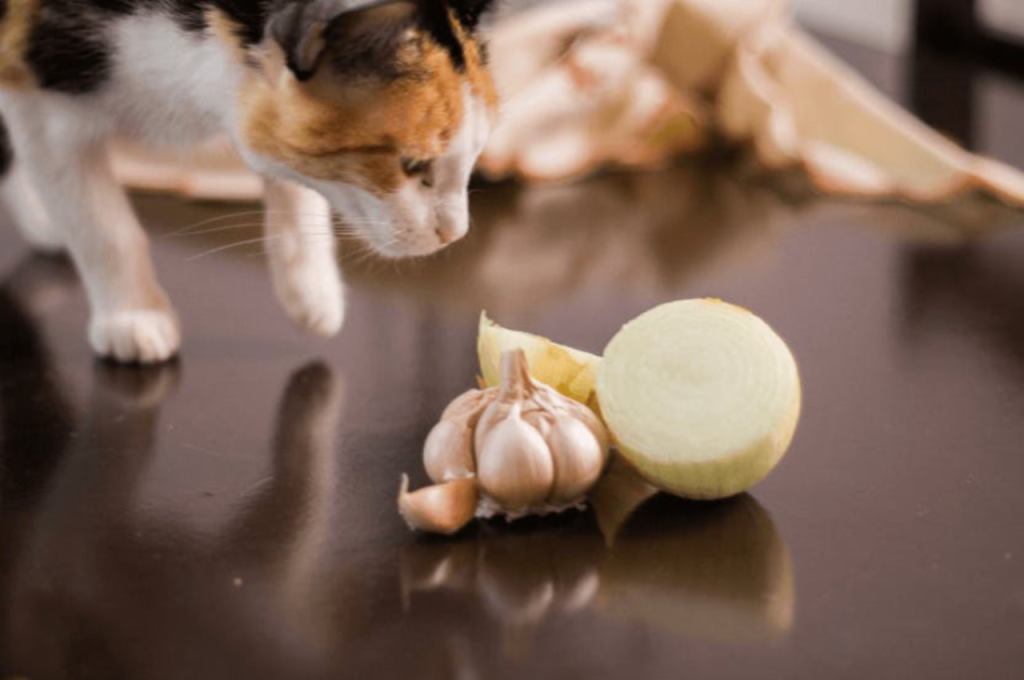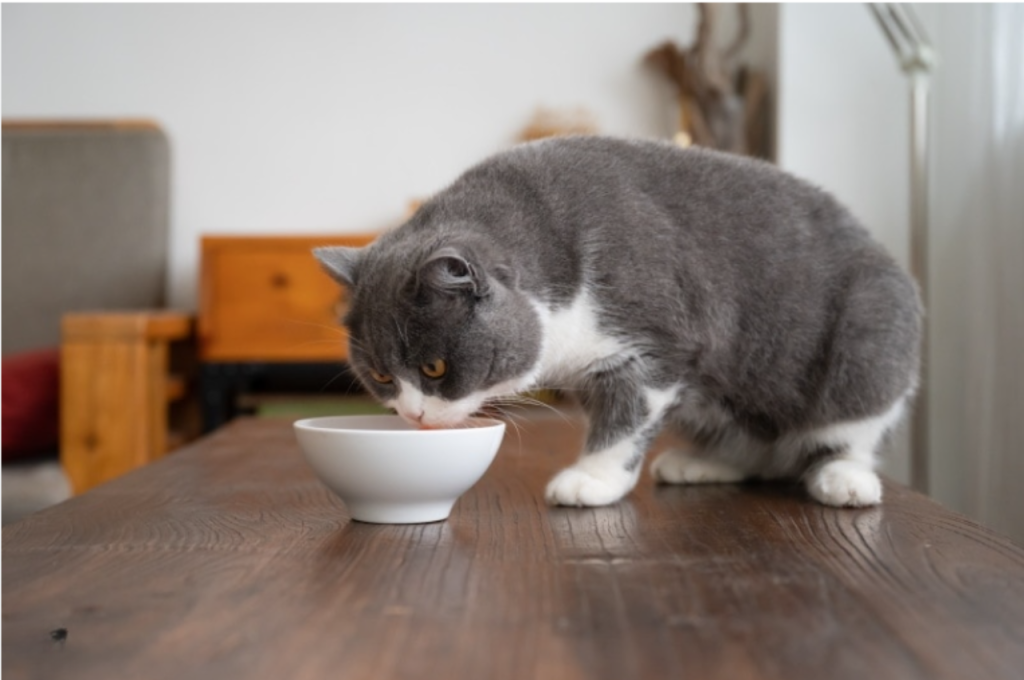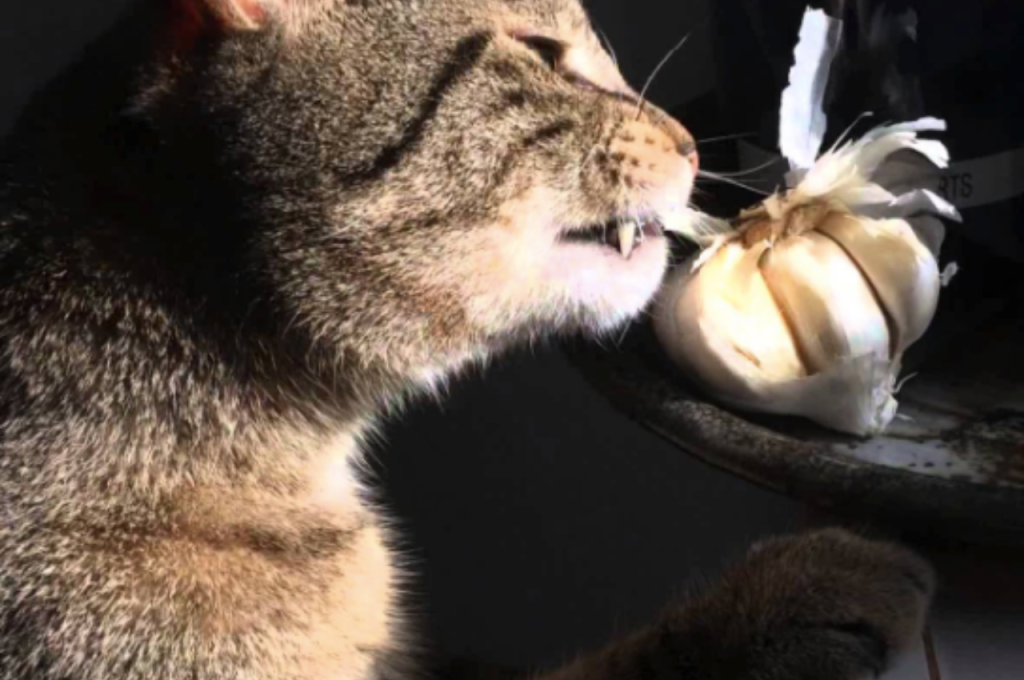Garlic is not safe for cats due to its toxicity which can lead to serious health issues. It’s best to avoid giving garlic to your feline friends.
Garlic may be a common ingredient in human dishes, but when it comes to cats, it can be harmful. As a responsible pet owner, it’s crucial to be aware of what foods are safe for your furry companions. Cats have sensitive digestive systems, and certain foods like garlic can cause toxicity in them.
Therefore, it’s essential to ensure that your cat’s diet is free from harmful substances like garlic to keep them healthy and happy. Let’s delve deeper into why garlic is not suitable for cats and explore safe alternatives for your beloved pets.
Nutritional Value of Garlic
Garlic, a staple ingredient in many cuisines worldwide, offers several nutritional components that contribute to its potential health benefits for humans. This pungent bulb is rich in various vitamins, minerals, and bioactive compounds. Here’s a breakdown of the nutritional value of garlic:

Garlic Composition
Garlic is a nutrient-rich food with various vitamins and minerals beneficial for cats. It contains allicin, sulfur, and antioxidants.
Effects On Cats’ Health
Consumption of garlic by cats can lead to hemolytic anemia due to toxic compounds. It can damage their red blood cells and affect their health adversely.
Toxicity Concerns
When it comes to cats, garlic presents significant toxicity concerns. Despite being a popular ingredient in many human dishes, garlic can be harmful to cats due to the presence of certain compounds that can be toxic if ingested in large amounts.
Harmful Compounds in Garlic
Garlic contains substances such as thiosulfates, which can provoke oxidative damage to a cat’s red blood cells when consumed in large quantities. This can lead to a condition called Heinz’s body anemia. It’s worth noting that certain breeds of cats, such as Japanese Bobtails and Siamese, might be more susceptible to the toxic effects of garlic due to certain genetic factors that affect their red blood cells.
Symptoms of Garlic Toxicity in Cats
- Weakness
- Vomiting
- Breathlessness
- Lethargy
- Abdominal pain
In some severe cases, ingestion of garlic can even lead to collapse or coma.
Even small amounts of garlic, such as those found in certain commercial cat foods or medicines, can build up over time and lead to toxicity symptoms.
Garlic vs. Onion Toxicity
Garlic and onion are toxic for cats, causing damage to their red blood cells. While small amounts of garlic are considered safe for cats, it’s best to avoid it altogether to prevent any potential harm. If you’re unsure about including garlic in your cat’s diet, consult with a veterinarian for personalized advice.
Differences in Toxicity Levels
When it comes to garlic and onion toxicity in cats, understanding the differences in toxicity levels is crucial. While both garlic and onions belong to the Allium family, they contain different levels of substances that can be harmful to our feline friends. Garlic, compared to onions, contains a lower amount of the toxic compound known as N-propyl disulfide. However, it still poses a risk to cats if ingested in large quantities. The small bodies of cats are unable to metabolize these substances effectively, leading to a toxic buildup. On the other hand, onions contain a higher concentration of N-propyl disulfide, making them more toxic to cats. This compound can cause a condition called Heinz body anemia, which damages red blood cells and reduces their ability to carry oxygen. It’s important to remember that both garlic and onions can be dangerous for our furry companions.
Similar Symptoms
Both garlic and onion toxicity can lead to similar symptoms in cats. These include gastrointestinal upset such as vomiting, diarrhea, and loss of appetite. Cats may also experience lethargy, pale gums, and increased heart rate. If you suspect your cat has ingested garlic or onions and observe any of these symptoms, it’s crucial to seek immediate veterinary care. Only a veterinarian can accurately diagnose and provide the necessary treatment for your feline friend. Considering the similarities in symptoms, it’s essential to be cautious when it comes to sharing any food containing garlic or onions with your cats. While garlic may have some potential health benefits for humans, it’s important to keep it away from our feline companions.
Treatment for Garlic Toxicity
Garlic toxicity can be harmful to cats. It is essential to avoid feeding them any garlic as it can lead to digestive issues and other health complications. Consult with a veterinarian for appropriate treatment options if your cat has ingested garlic.

Veterinary Care
If your cat has ingested garlic and is experiencing symptoms of garlic toxicity, it is crucial to seek immediate veterinary care. Garlic can be extremely harmful to cats, causing damage to their red blood cells and leading to serious health complications. A veterinarian will be able to evaluate your cat’s condition and provide the necessary treatment to minimize the effects of garlic toxicity. They may perform blood tests to assess the severity of the toxicity and administer appropriate medications to support your cat’s recovery.
Home Care Tips
While veterinary care is essential for treating garlic toxicity in cats, there are also some home care tips that you can follow to aid in your cat’s healing process. First and foremost, it is essential to prevent further exposure to garlic. Ensure that all garlic and garlic-containing products are safely stored away from your cat’s reach. Additionally, avoid feeding your cat any human foods that contain garlic or other potentially toxic ingredients. To support your cat’s recovery, keep them well-hydrated by providing fresh water at all times. Monitor their eating habits and encourage them to eat their regular balanced diet.
However, it is important to avoid force-feeding them or introducing any new foods without consulting your veterinarian. Create a calm and comfortable environment for your cat during their recovery. Provide a quiet space for them to rest, away from any loud noises or disturbances. Ensure they have a clean litter box nearby, as it is important for them to eliminate waste regularly. Monitor your cat’s condition closely and observe any changes in behavior or symptoms. If you notice any worsening of symptoms or new concerns, contact your veterinarian immediately for further guidance.
Overall, while veterinary care is crucial for treating garlic toxicity in cats, implementing these home care tips can help support your cat’s healing process and aid in their recovery. Remember, the well-being of your feline friend should always be your top priority.
Safe Alternatives for Cats
Cats can be picky eaters, so providing them with safe alternatives is essential. When it comes to enhancing the flavor of their food, it’s important to be cautious about the ingredients. Fortunately, there are safe alternatives for cats that can add flavor and provide health benefits without any risks. Let’s explore some cat-friendly herbs and spices as well as healthy eating habits for your feline friend.
Cat-friendly Herbs and Spices
When it comes to adding flavor to your cat’s diet, several herbs and spices are safe for feline consumption. Catnip is a well-known herb that can stimulate your cat’s senses and provide them with enrichment. Parsley is another cat-friendly herb that can help with digestion and freshen your cat’s breath.
Healthy Eating Habits
In addition to incorporating cat-friendly herbs and spices into your cat’s diet, it’s important to establish healthy eating habits. This includes providing your cat with a balanced and species-appropriate diet. Opt for high-quality cat food that is rich in essential nutrients and free from harmful additives. Additionally, ensure your cat has access to fresh water at all times.
Consulting Your Vet
Before adding garlic to your cat’s diet, it’s essential to consult with a veterinarian to ensure its safety and suitability. While garlic is sometimes suggested as a natural remedy for certain health issues in cats, it can pose risks if consumed in large quantities.
Importance of Professional Advice
Seek your vet’s guidance as they can offer tailored recommendations. Veterinarians can provide personalized recommendations based on factors such as your cat’s age, breed, weight, overall health, and any existing medical conditions.
Customized Dietary Recommendations
Veterinarians can develop a tailored plan to safeguard your cat’s well-being.
Final Thoughts
While garlic offers notable nutritional value and potential health benefits for humans, it’s crucial to remember that cats metabolize certain compounds in garlic differently, rendering it toxic to them. As responsible pet owners, we must prioritize our feline companions’ well-being by avoiding any foods, treats, or supplements containing garlic.
Balanced Approach to Cat Nutrition
Ensure your cat’s diet includes a mix of proteins, fats, carbohydrates, vitamins, and minerals.
Caring for Your Cat’s Wellbeing
Regular vet visits, quality food, exercise, and attention to their behavior are essential.

Frequently Asked Questions is Garlic ok for Cats?
Sure! Here are some questions about garlic ok for cats:
Q. Can cats eat garlic safely?
A. Yes, cats should not be given garlic as it can cause toxicity, resulting in symptoms like vomiting, weakness, and even organ damage. It’s best to avoid feeding garlic to cats and opt for cat-safe treats instead.
Q. What are the dangers of garlic for cats?
A. Garlic can lead to oxidative damage to a cat’s red blood cells, resulting in anemia. It contains compounds that can be toxic to cats, affecting their health and potentially leading to serious complications.
Q. How much garlic is toxic to cats?
A. Even small amounts of garlic can be harmful to cats. Toxicity can occur from consuming a single clove of garlic for cats. It’s essential to prevent any exposure to garlic in a cat’s diet to ensure their well-being.
Q. Are there alternatives to garlic for cats?
A. Yes, there are plenty of cat-friendly herbs and spices that can be used as substitutes for garlic. Catnip, parsley, or cat-safe grass can be used to add flavor and variety to a cat’s diet without posing the same risks as garlic.
Conclusion
In essence, it’s crucial to approach adding garlic to your cat’s diet with caution. While it may offer some health benefits, the potential risks far outweigh the advantages.
Ultimately, consulting with a veterinarian about your cat’s dietary needs is vital to ensure their well-being and avoid any potential health issues down the road.
